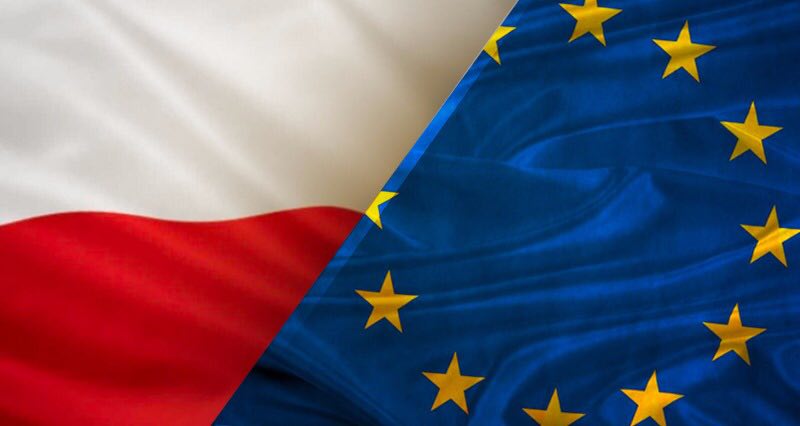Poles are one of the most Euro-enthusiastic nations of the European Union. According to the social research “Eurobarometer 2018”, more than 80% of the Poles consider themselves to be EU citizens, identifying themselves with the Union. It’s a distinctly higher percentage than in the countries of the so called “old Union”, such as in the Netherlands (70%), France (61%) or Italy (56%). Although European institutions are facing a crisis of trust – Brexit is the most vivid example – in Poland 46% of respondents trust the EU. In comparison, only 36% of Italians and 34% of French trust EU institutions. Poles are also at the forefront of European nations when it comes to optimism about EU’s future (69% of the respondents) and they are happy with current condition of EU’s economy. So how is it possible that Poles are widely considered to be one of the most Eurosceptic nations and critics of Brussels policy?
The refugee relocation system, strongly supported by Berlin, should be considered the first symptom of the conflict between Poland and the EU. The Government of Law and Justice (PiS), which criticized former administration of the Civic Platform (PO) for “yielding Polish foreign and internal policy to Germans”, has become a hostage of his own national-conservative electorate, which can withstand more broken promises, but not the potential surrender of Polish migration policy to the EU. Warsaw is using the argument that Poland has welcomed most refugees above all other European countries – including more than 1 million Ukrainians, according to conservative estimates. Brussel remains deaf to Warsaw’s rhetoric, pressing for more “solidarity”, but only in solving “old EU’s” problems… especially German problems.
If we ignore diplomatic and bureaucratic slogans of the EU, the Polish government is basically facing a foreign dictate, an attempt to yield its migration policy to an external decision center. Although Polish stubbornness may look awkward in the eyes of Western Europe, this is a typical misunderstanding between the West and Central European countries. Nations of Central Europe have outstandingly retrospective identities and long historic memory – foreign dictates usually evoke the worst associations. Reckless pressure from Berlin via Brussel may only bring the opposite effect they intend, further cementing the government’s position.
“The Rule of Law Framework” procedure launched by EU against Poland in connection with the reform of the judiciary started by the Polish government, in the eyes of most of the Poles looks more like Brussel’s and Berlin’s revenge, and not real concern about the state of Polish democracy as official EU slogans claim. The liberal opposition in Poland is trying to use EU statements against the Law and Justice’s government, but a bigger part of Polish society sees this kind of political agitation as anti-Polish action ordered by external powers. In all surveys, the ruling party has the support of most of the respondents.
What is really interesting, is that the EU’s establishment’s actions against Poland are not able to shake off Polish support for European integration, which is still associated with economic growth and a historical “return to Europe”. This notion finds confirmation in statements of the key leaders of the Law and Justice. Party leader Jarosław Kaczyński, unofficially the most important person in Polish constellation of power, stated in his recent speech that “Poles want to be a part of Europe and European Union, and today << Europe>> means the European Union”. In the context of the EU’s actions against Poland, Kaczyński’s words may sound a little bit schizophrenic, but they don’t provoke any protests even in the most conservative cadres of the Law and Justice. Some of the openly Eurosceptic members of the ruling party asked about these concrete words of the leader’s speech, replied that “the EU can be tolerated, but it would be nice if there was more godliness in its structures”.
It seems that a contradiction between Polish religious conservatism and the liberal axiology of the European Union may lead to one of two possible scenarios: The first scenario assumes that Polish society will slowly evolve into a Western European model, an idea strongly supported by EU’s net of foundations, grants and think-tanks. Those pushing for Poland to take this path receive massive financial support from the George Soros “Open Society” Empire. The alternative scenario for Poland assumes that Poles will get discouraged with attempts to impose the Western European ideological matrix on the country, leading to strengthening Eurosceptic tendencies in Poland. However, there is perhaps also a third scenario: Polish society will be stuck in its current state of political schizophrenia. There are many indications that this “third way”, so typical in Polish history, is the most probable.

















Leave a Reply